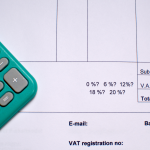Introduction to Business Deductions in the UK
For UK-based small to medium business owners, understanding and maximizing business deductions is crucial for reducing taxable income and enhancing profitability. Business deductions allow companies to subtract certain costs from their gross income, lowering the amount of income that is subject to tax. This comprehensive guide will walk you through the key aspects of maximizing these deductions effectively.
Overview of Eligible Business Expenses
Business deductions in the UK cover a wide range of expenses that are deemed necessary and exclusively for the purposes of running the business. Here are some common examples:
- Office Supplies: Items necessary for your office, such as stationery, printers, or software, can be deducted.
- Business Travel: Costs for travel related to business, including mileage for business trips, flights for business meetings, and accommodation, can be claimed.
- Employee Costs: Salaries, bonuses, and benefits for employees are fully deductible. Training costs can also be included if they relate directly to your business.
Each expense must be supported by documentation, and it’s essential that these costs are solely for business purposes.
Specific Deductions for Different Business Structures
The ability to claim certain deductions can vary depending on your business structure:
- Sole Traders and Partnerships: Generally have straightforward deductions for business expenses directly from their income.
- Limited Companies: Can deduct business expenses before corporation tax is calculated, and may also benefit from additional reliefs such as on corporate gains.
Capital Allowances
Capital allowances are a form of tax relief available to businesses on certain purchases or investments. These include:
- Plant and Machinery: This broad category can include everything from computers to large machinery used in manufacturing.
- Business Vehicles: Cars, vans, and lorries that are used in the business can often be included.
- Improvements to Property: Costs for fixtures and fittings in a business property can sometimes be claimed.
Understanding how to navigate capital allowances can significantly impact your tax liabilities, allowing for depreciation and wear and tear of assets.
Research and Development Relief
R&D tax relief is designed to encourage innovation and is available to businesses that work on innovative projects in science and technology. This relief can reduce your tax bill or, for some small or medium-sized companies, provide a tax credit. To qualify:
- Your project must aim to advance overall knowledge or capability in a field of science or technology through the resolution of scientific or technological uncertainty.
- You must be able to provide evidence of the R&D activities.
Strategies for Maximizing Deductions
Effective strategies for maximizing deductions include:
- Thorough Record-Keeping: Maintain detailed records of all expenditures with receipts to substantiate claims.
- Timing of Expenses: If possible, accelerate significant purchases to include them in the current fiscal year’s deductions.
- Planning Major Purchases: Analyze the benefits of making large purchases and how they align with business activities to take full advantage of capital allowances.
Common Mistakes and How to Avoid Them
Common pitfalls include:
- Misclassifying Expenses: Ensure that expenses are classified correctly as some costs might not be fully deductible.
- Incomplete Records: Failing to keep comprehensive records can lead to disallowed deductions if audited.
- Overlooking Smaller Deductions: Small expenses can add up, so include all eligible costs.
Updates and Changes in Tax Law
Stay updated on changes to tax laws that could affect your deduction strategies. For instance, recent updates might include changes in rates for capital allowances or adjustments to R&D tax credit rules. Regular consultation of the HMRC website and guidance from tax professionals is advisable.
Conclusion
Maximizing business deductions requires an understanding of what expenses are deductible and a strategy for documentation and timing of expenses. By employing these practices, UK businesses can significantly reduce their tax liability, preserving more revenue for growth and investment.
Business owners should consider seeking advice from financial advisors or tax professionals to ensure they are making the most of their potential tax savings. This guide has provided a foundation, but tailored advice can make a significant difference in your tax planning strategy.
For more detailed information and specific advice tailored to your business, visiting the HMRC website or consulting with a tax professional is highly recommended. Equip your business with the knowledge to navigate the complexities of UK tax law effectively and maximize your financial outcomes.







